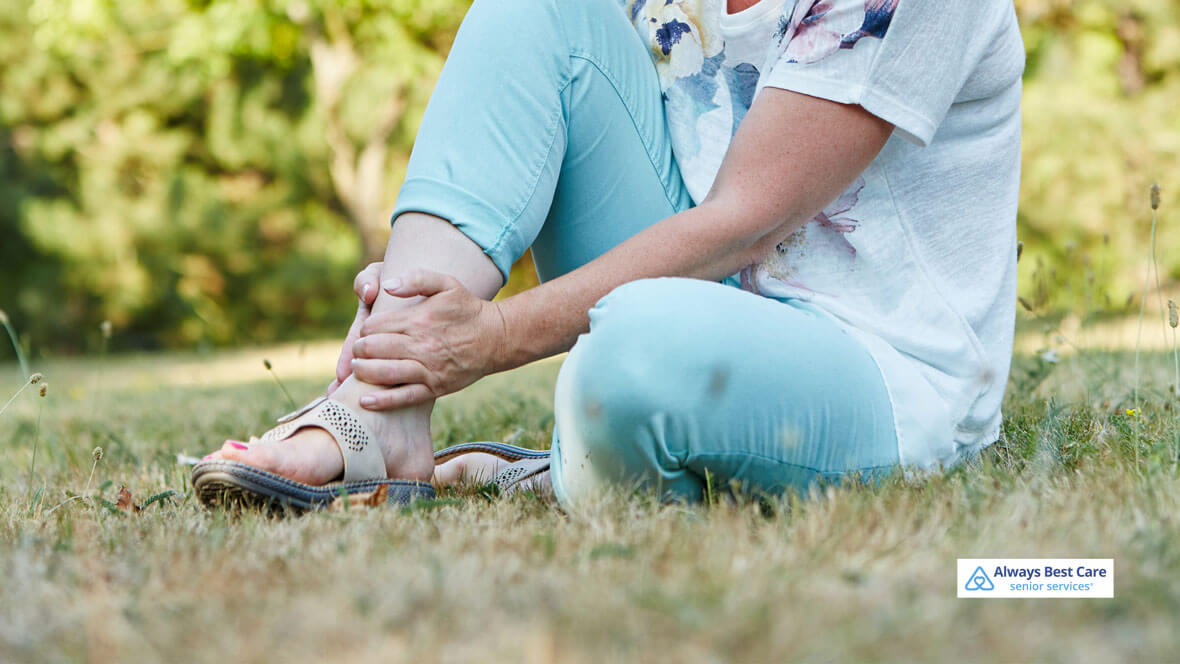On Your Feet: Common Foot Problems for Seniors

Did you know that each foot is a complex structure with 26 bones and 33 joints, supported by over twice as many muscles, tendons, and ligaments? Throughout your life, your feet endure considerable wear from walking, running, and navigating various terrains.
As you age, the protective skin and fat pads on your feet thin out, circulation diminishes, and the sensation decreases, making bones more brittle and prone to injuries such as twisted ankles, fractures, blisters, or cuts. These can greatly affect your comfort and mobility, highlighting why foot care is crucial for your overall health.
Table of Contents
Daily Foot Inspections
Regular foot inspections are vital for maintaining foot health. Use a long-handled mirror to examine difficult-to-see areas or ask for assistance from a family member or caregiver. Check for any changes in the color, texture, or sensation of your skin, as these can indicate potential health issues. Look for cuts, sores, bruises, blisters, or any swelling. Early detection of these signs can help prevent further complications.
Promoting Circulation and Reducing Swelling
Avoid remaining in one position for extended periods to improve circulation and minimize swelling. Regularly engage in activities such as rotating your ankles, stretching your feet, and walking. Elevating your feet can also promote better blood flow and reduce swelling. Additionally, consider giving your feet a gentle massage to relax sore muscles and enhance circulation.
Nail Care
Maintaining proper toenail care is critical to prevent conditions like ingrown toenails, which can hinder your ability to walk. Regularly trim your nails, especially after bathing, when they are softer and more accessible to cut. If your nails become brittle, thickened, or discolored, consult a healthcare provider, as these symptoms could signal underlying health issues.
Moisturizing
Hydrate and protect your feet by applying a moisturizer after bathing. This helps prevent dryness and cracking. Use creams specifically formulated for dry or callused feet to ensure your skin remains soft and healthy.
Choosing Proper Footwear
Selecting the proper footwear is essential; shoes that are either too old or poorly fitted can cause foot problems. As your feet may change in size as you age, it’s important to wear shoes that fit correctly, neither too tight nor too loose, to prevent blisters and sores. Opt for shoes with firm soles and good traction to help stabilize your steps and reduce the risk of falls.
Be Proactive about Your Foot Health
Never overlook any changes or discomfort in your feet. Always discuss any foot-related concerns with your doctor to receive proper treatment. An in-home caregiver can help you with routine foot care tasks such as moisturizing, trimming nails, and checking for abrasions. They can also assist with organizing doctor appointments, providing transportation, and enhancing the safety of your living environment. Contact Always Best Care Birmingham at +1 659-200-5714 to schedule a free consultation and learn more about how you can benefit from in-home care.





